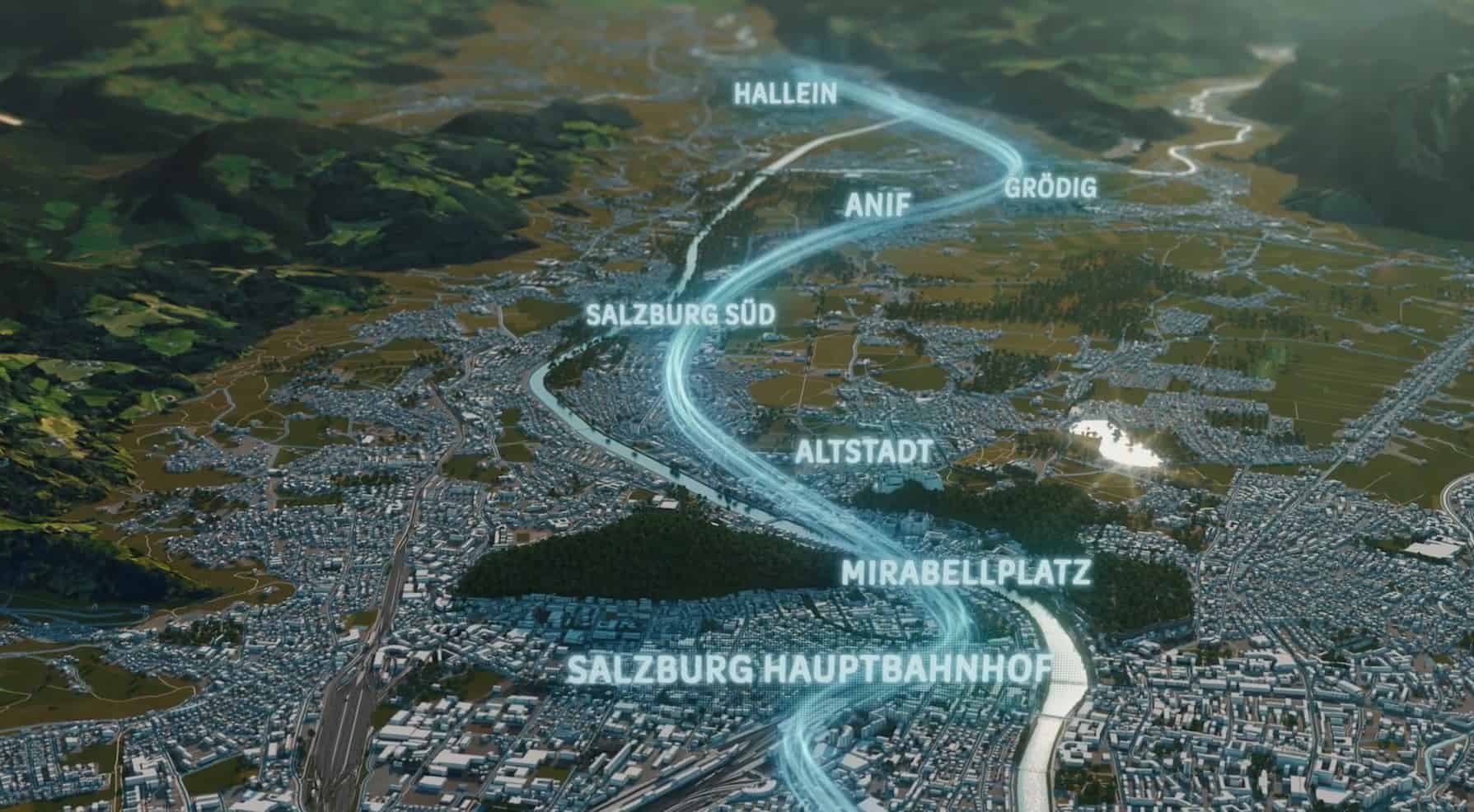Thessaloniki gets ready for its metro launch in November
The underground rapid transit lines have been under construction for almost two decades due to various project delays
 TheMayor.EU logo
TheMayor.EU logo 80% of the investment for construction is expected to pay back through the added value of job creation and a boost for auxiliary services in that Austrian state
Yesterday, Economica Institute for Economic Research published a study on the economic benefits of constructing an underground railway for the Austrian city of Salzburg as well as the region. The study is part of the S-Link project, aiming to expand the urban railway through an underground connection.
The study claims that around 80% of the investment needed for construction would come back as added value, through jobs and auxiliary industries which will support the development process.
Moreover, the research points out that this investment can have tremendous benefits for the region during an economic downturn. The project would also lower CO2 emissions, offer faster commutes and increase the attractiveness of certain residential areas.
According to an official statement, the city plans to conduct further research and feasibility studies by the end of 2023. This phase is set to start in 2024 while completion is scheduled for 2028. The route will start at Salzburg Central Station while the end is proposed for the village of Hallein to the south of the city.
 The planned Salzburg Hallein underground line, Source: S-Link
The planned Salzburg Hallein underground line, Source: S-Link
Apart from reducing traffic, the new line will also help expand the city into the south with greater connections to commuter towns. According to the project’s climate study, the S-Link would be able to compensate for the CO2 emitted during construction in 5 to 20 years, depending on the mid to optimistic scenario.
Even in the most pessimistic scenario where all drivers in the region switch to electric vehicles, the S-link would still outperform in terms of emissions.
The cost-benefit analyses by Economica estimate that with a projected cost of 200 million euros for construction, the project will be able to produce a gross added value of 162.7 million euros for the whole of Austria. 116.7 million, or around 70% would remain in the Austrian Federal State of Salzburg.
According to Helmut Berrer, one of the authors of the study, around 62.3 million would be added in the city of Salzburg alone. While it would mainly benefit from direct economic effects, a large part of the added value for Salzburg state would occur due to the auxiliary support supply chain for the project.
Researchers estimate that for every 100 jobs created as a direct result of the project, 88 other jobs will appear in the rest of Austria, with 55 of those just in Salzburg state. Economica has calculated that the first sub-project will result in a total demand for 2,133 workers in Salzburg alone.
Moreover, researchers pointed to the World Bank’s projected economic downturn in Europe expected in 2023 and 2024. This massive project would have an invaluable effect on the region in the next five years when it is scheduled for construction.

The underground rapid transit lines have been under construction for almost two decades due to various project delays

Now you can get your wine in Talence by paying directly in Bitcoin

That’s because the state has to spend money on updating the railway infrastructure rather than subsidizing the cost of the popular pass

Rethinking renewable energy sources for the urban landscape

The examples, compiled by Beyond Fossil Fuels, can inform and inspire communities and entrepreneurs that still feel trepidation at the prospect of energy transition

Now you can get your wine in Talence by paying directly in Bitcoin

The 10th European Conference on Sustainable Cities and Towns (ESCT) sets the stage for stronger cooperation between the EU, national and local level to fast track Europe's transition to climate neutrality.

At least, that’s the promise made by the mayor of Paris, Anne Hidalgo

The underground rapid transit lines have been under construction for almost two decades due to various project delays

At least, that’s the promise made by the mayor of Paris, Anne Hidalgo

Hostal de Pinós is located in the geographical centre of the autonomous region

Despite its church-y name, the district has long been known as the hangout spot for the artsy crowds

Urban dwellers across the EU are having a say in making their surroundings friendlier to people and the environment.

Forests in the EU can help green the European construction industry and bolster a continent-wide push for architectural improvements.

Apply by 10 November and do your part for the transformation of European public spaces

An interview with the Mayor of a Polish city that seeks to reinvent itself

An interview with the newly elected ICLEI President and Mayor of Malmö

A conversation with the Mayor of Lisbon about the spirit and dimensions of innovation present in the Portuguese capital














